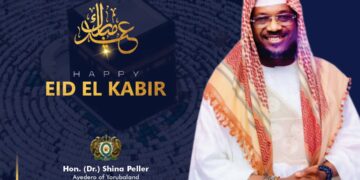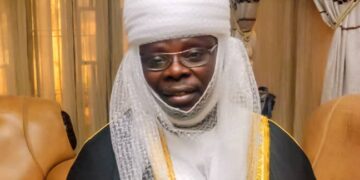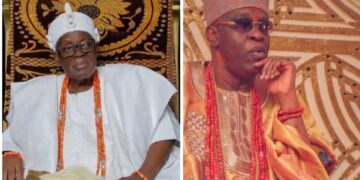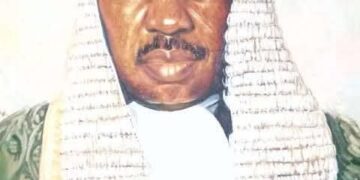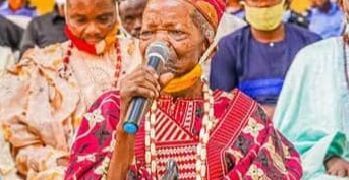As Muslims around the world mark Eid-el-Kabir, the Founder and Spiritual Head of Shafaudeen-in-Islam Worldwide, Prof. Sabit Olagoke JP, has called on the Nigerian government to urgently address the country’s mounting challenges of insecurity, hunger, and unemployment.
In a statement commemorating the occasion, Prof. Olagoke emphasized the need for immediate and decisive government action to restore peace and stability across the nation. He noted that the rising wave of violence and insecurity continues to instill fear in communities, thereby undermining citizens’ ability to celebrate significant religious festivities like Eid in peace.
“Insecurity remains a pressing challenge in our society. It is imperative that President Bola Tinubu takes decisive action to protect the lives and property of citizens. The safety of our communities should be a top priority for his government,” he stated.
Beyond security concerns, the Islamic scholar highlighted the growing food crisis in the country, calling on the government to implement policies that promote agricultural development and reduce the soaring prices of essential commodities. He stressed that hunger is a daily reality for many Nigerians and must be addressed with urgency.
“Hunger is a reality for many in our nation. It is essential that the government embarks on programmes that will alleviate this suffering and provide sustenance for every citizen,” he said.
Prof. Olagoke also drew attention to the high rate of unemployment, urging the government to roll out job creation initiatives and economic empowerment programmes. Reflecting on President Tinubu’s two years in office, he urged a shift in focus toward improving the welfare of ordinary Nigerians.
“As we reflect on the past two years, it is crucial that the government shifts its focus from aggravating the challenges faced by the people to alleviating their suffering. Job creation and economic empowerment must be at the forefront of our national agenda,” he remarked.
He further called for unity and interfaith dialogue among religious leaders and communities as a means of fostering national cohesion. Prof. Olagoke emphasized that Eid-el-Kabir should serve as a time for reflection, renewal, and collective action for the betterment of society.
“Eid is a time for reflection and renewal. It is an opportunity for us to come together, regardless of our differences, and celebrate our shared humanity,” he said. “Let us remember the lessons of sacrifice and generosity that this day teaches us. Every act of kindness counts, and together we can uplift our communities.”
He concluded with a message of peace and hope, wishing all Muslims a joyful Eid-el-Kabir and urging a renewed commitment to compassion, unity, and national progress.
“May we all strive to embody the spirit of unity and compassion, not just during Eid, but throughout the year. Let us work together for the progress of our nation, ensuring that no one is left behind in our journey toward a better future,” he said.








